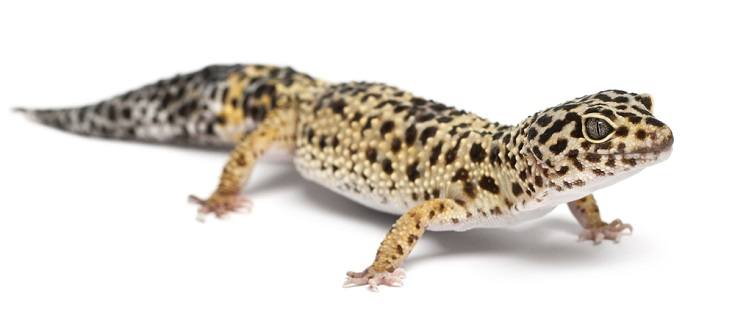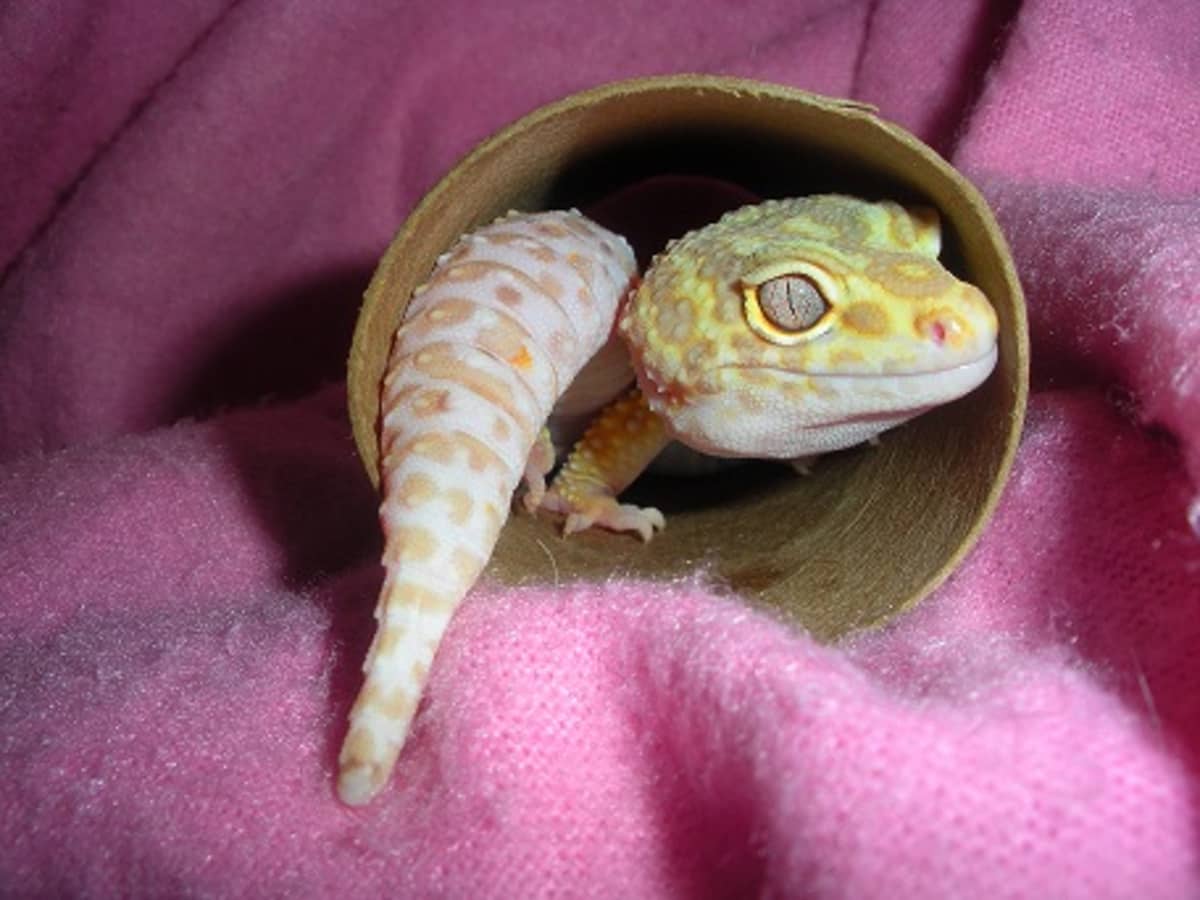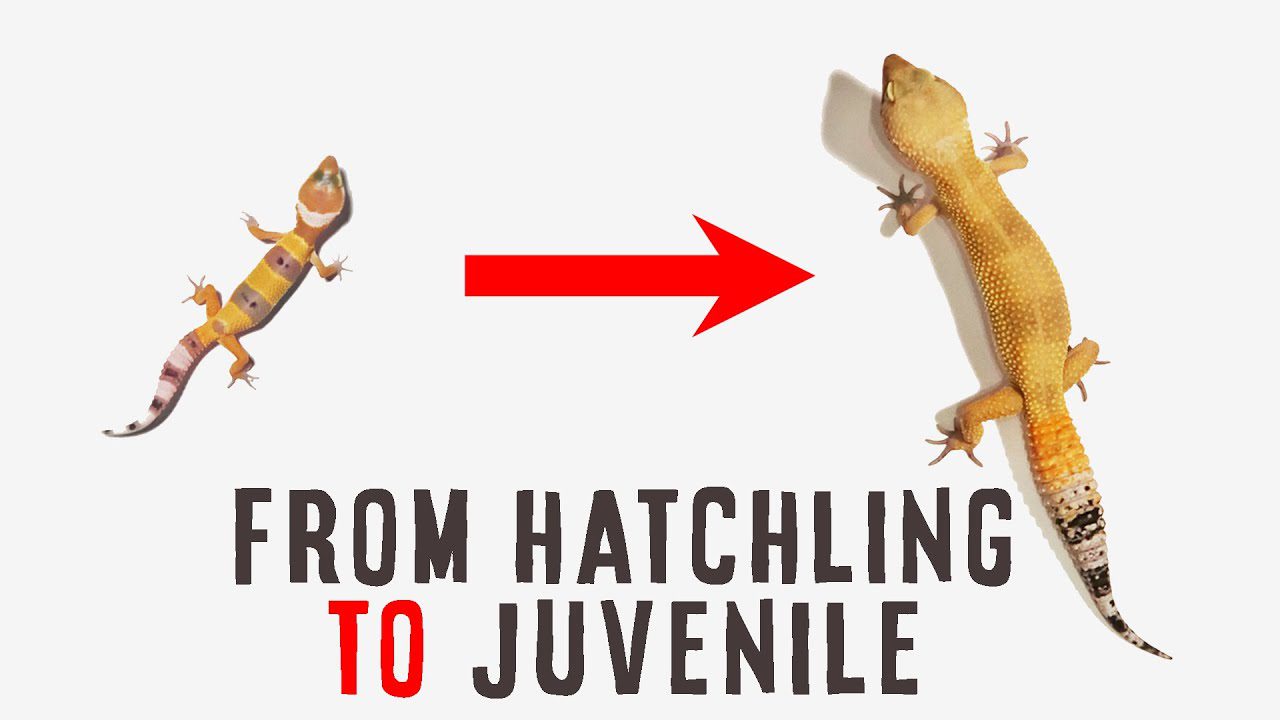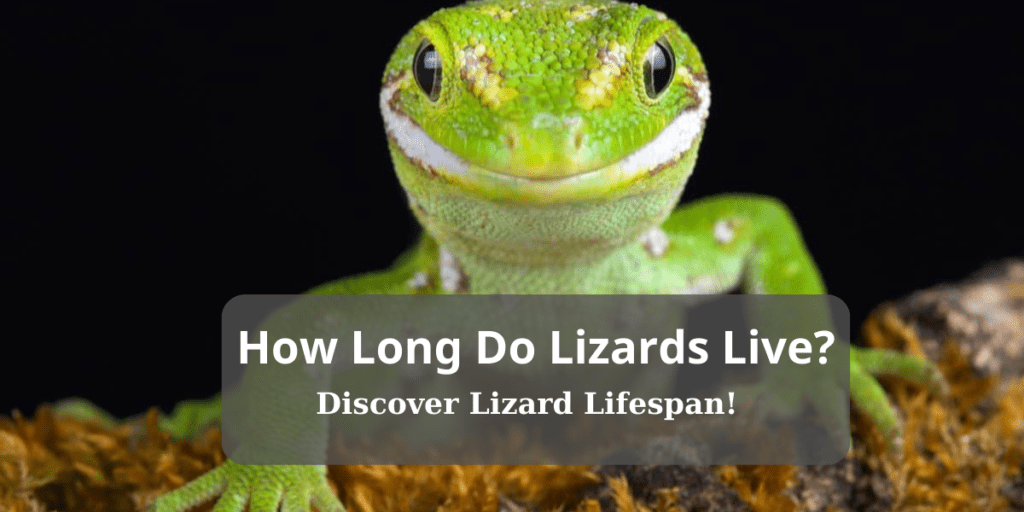Leopard geckos are one of the most popular pet reptiles, and for good reason! They are relatively easy to care for, have calm personalities, and can live quite a long time with proper husbandry. So how long do leopard gecko live? With optimal care, leopard geckos can live 10-20 years or even longer! Their lifespan largely depends on the quality of care they receive.
Average Lifespan of Leopard Geckos

On average, the typical lifespan of a leopard gecko is 10-20 years. With exceptional care and a bit of luck, some have been known to live over 20 years!
Here are some factors that influence their lifespan:
- Genetics: Some leopard geckos are genetically predisposed to live longer than others. Selective breeding can produce geckos that are robust and long-lived.
- Husbandry: Proper housing, temperature, nutrition, and handling are key. Leopard geckos that receive optimal care are more likely to reach their full lifespan potential.
- Health: Leopard geckos with chronic health issues may have a shortened life expectancy. Providing vet care as needed can help maximize longevity.
- Activity Level: Leopard geckos that get regular mild exercise tend to be healthier than inactive ones. Providing an enriched habitat encourages movement.
- Reproduction: Breeding takes a toll on female leopard geckos. Producing eggs shortens their lifespan compared to non-breeders.
With attentive care, the average leopard gecko today is capable of reaching 15-20 years. Some well cared for geckos have broken records and lived over 30 years!
Factors That Affect Leopard Gecko Lifespan

Let’s take a more in-depth look at some of the key factors that impact how long leopard geckos live.
Genetics
Some leopard geckos are genetically wired to be longer-lived than others. Selective breeding has produced robust, healthy bloodlines that regularly live over 20 years. Other genetic lines may be more prone to health issues that cut their lives short. Responsible breeding can maximize longevity.
Husbandry
Proper husbandry is essential for leopard geckos to reach their lifespan potential. This includes:
- Enclosure: A suitable sized tank with proper heating and lighting.
- Temperature: Warm side 88-92°F. Cool side 70-75°F.
- Substrate: Non-abrasive, like paper towels or reptile carpet.
- Humidity: 40-60% humidity.
- Hydration: Provide clean water at all times.
- Nutrition: Healthy feeder insects, calcium/vitamin supplements.
- Habitat: Hides, plants, décor to enrich habitat.
- Handling: Frequent gentle handling to socialize the gecko.
With optimal husbandry practices, leopard geckos thrive and are poised for maximum longevity.
Health
Underlying health conditions may shorten a leopard gecko’s life. Some issues to monitor include:
- Metabolic Bone Disease: Caused by poor nutrition/calcium deficiency. Can be fatal if left untreated.
- Respiratory Infections: Often caused by poor humidity or enclosure hygiene. May require antibiotic treatment.
- Intestinal Parasites: Commonly caused by contaminated feeder insects. Treatable by vet prescribed dewormers.
- Mouth Rot: A bacterial infection of the gums/mouth. Treated with antibiotics and improved husbandry.
- Egg Binding: Occurs in female geckos, when eggs become stuck internally. Requires veterinary care.
Providing vet care as needed, and optimizing their environment can help leopard geckos overcome health hurdles and reach their full lifespan.
Activity Level
Leopard geckos that get regular exercise and enrichment tend to be healthier and live longer. Some ways to encourage activity include:
- Add climbing décor like reptile hammocks or branches
- Provide a larger enclosure for exploring
- Offer a dig box for burrowing
- Place food dishes on opposite sides to promote movement
A stimulating habitat prevents obesity and improves cardiovascular health – boosting longevity.
Breeding
Female leopard geckos generally have a shorter average lifespan than males, primarily due to the demands of egg laying. Producing large clutches of eggs 2-3 times per season takes a major toll.
To maximize a female’s longevity, it’s best to:
- Allow her to reach 18-24 months before first clutch
- Limit clutches to 1-2 per season
- Provide extended breaks between breeding seasons
- Closely monitor calcium/nutritional needs
With careful breeding management, females can enjoy long lives comparable to males. Responsible breeding is vital for her health.
Signs of Aging in Leopard Geckos

As leopard geckos reach their senior years, there are some common signs of aging to look out for. These include:
- Slowed movement/activity level
- Increased sleeping/resting
- Reduced appetite or interest in food
- Weight loss
- Looser skin or wrinkling
- Cloudy eyes
- Lumps or tumors
If your aging gecko displays any of these symptoms, schedule a vet visit to rule out underlying health issues. With attentive care, geriatric geckos can still live happily for many years past their prime. Adjust their habitat and diet as needed to support their senior health needs.
Caring for Geriatric Leopard Geckos
Caring for an elderly leopard gecko requires some special considerations. Here are some tips:
- Provide easier access to food/water dishes by lowering their placement or using a shallow bowl.
- Maintain ideal ambient temperatures. Seniors have a harder time regulating their body heat.
- Monitor their weight. Senior geckos may need more frequent feeding of smaller meals.
- Check their mobility. Add carpets or paper towels if they have trouble gripping smooth surfaces.
- Observe their activity level. Consult a vet if you notice fatigue, trembling, or unsteadiness.
- Keep their habitat clean and stress-free. Elderly geckos are prone to illness from unhygienic conditions.
- Schedule vet checkups every 6 months. Screening for age-related issues helps maximize longevity.
With attentive and proactive care, geriatric leopard geckos can enjoy many healthy years as they age gracefully. Their lifespan is a testament to your devoted husbandry!
Can Leopard Geckos Live Over 20 Years?
Yes, it’s absolutely possible for leopard geckos to live over 20 years and even surpass 25-30 years in exceptional cases. The oldest documented leopard gecko reached 28 years old!
For a leopard gecko to achieve such remarkable longevity requires:
- Stellar genetics: Long-lived robust bloodlines are more likely to become centenarians.
- Perfect husbandry: Providing an ideal habitat and diet from birth sets the foundation for longevity.
- Excellent health: Preventing or promptly treating any illness supports extended lifespan.
- Consistent handling: Frequent gentle handling helps manage stress and boosts immunity.
- Retirement from breeding: Females that are never bred, or retired early on, tend to far outlive breeders.
- A bit of luck: Even with everything done right, living over 20 years involves some good fortune too!
Reaching such an advanced age is not common, but becoming a leopard gecko elder in the 20 year range is certainly possible. With meticulous care and commitment, you may be rewarded with 2 decades of enjoyment with your beloved pet gecko!
Conclusion
With attentive husbandry, leopard geckos have impressive longevity compared to many other reptiles. On average, leopard geckos live 10-20 years. Some have broken records and reached over 30 years old!
Maximizing a leopard gecko’s lifespan involves providing optimal genetics, housing, diet, health care, and handling from the start. Given the proper care, these special reptiles can thrive well into their senior years and bring decades of joy as pets. Their long lifespans allow plenty of time to treasure your leopard gecko companion.
FAQs About How Long do Leopard Gecko Live
Can the lifespan of a leopard gecko vary based on factors like diet and habitat?
Yes, the lifespan of a leopard gecko can be influenced by factors such as diet and habitat. Providing a balanced diet, proper temperature, and humidity levels, as well as a stress-free environment, can significantly impact their longevity. Well-maintained care can extend their lifespan.
Are there differences in the lifespan of male and female leopard geckos?
Generally, there are minimal differences in the lifespan of male and female leopard geckos when kept in similar conditions. Both can live up to 15-20 years in captivity. However, females may face certain health challenges related to egg laying, potentially impacting their overall lifespan.
What can I do to ensure a longer and healthier life for my leopard gecko?
To ensure a longer and healthier life for your leopard gecko, provide a well-balanced diet, maintain proper enclosure conditions, offer hiding spots, and minimize stress. Regular veterinary check-ups, good hygiene, and prompt attention to any health issues are also essential for their well-being.
Do leopard geckos have a maximum age they can reach?
Leopard geckos don’t have a well-documented maximum age, but they can typically live up to 15-20 years in captivity with proper care. Individual longevity may vary, and some may exceed these averages, but it’s essential to provide consistent, high-quality care to maximize their potential lifespan.
Are there common health issues that can affect their lifespan?
Yes, common health issues like metabolic bone disease, respiratory infections, parasites, and obesity can affect a leopard gecko’s lifespan. Regular health assessments, appropriate diet, and maintaining a clean and suitable habitat can help prevent these issues and promote a longer, healthier life.



